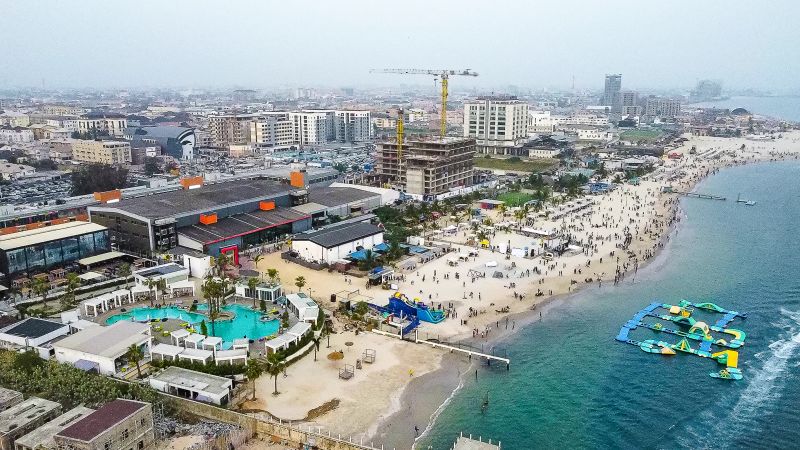Nigerian business mogul Paul Onwuanibe received a notification from Lagos state authorities in late March that he had seven days to vacate his multimillion-dollar beach resort, Landmark Beach. The resort falls within the right of way of a planned 435-mile coastal highway designed to link Lagos and Calabar. Onwuanibe expressed a mix of emotions upon receiving the demolition order, including amazement and concern, as the plans for the highway were not in place when he obtained the land in 2007.
The Landmark Group, led by Onwuanibe, is a key player in Nigeria’s tourism and hospitality industries, with the beach resort listed among Nigeria’s best in 2023 by the Lonely Planet travel guide. Valued at over $200 million, the Landmark site is home to over 80 businesses, providing more than 4,000 direct jobs and generating significant annual tax revenue. The approval for the coastal road project was given in February, with plans for a 435-mile highway running through nine coastal states in Nigeria, featuring five lanes on each side of the dual carriageway and a train track in the middle.
While the coastal road project is expected to boost the economy, environmentalists raise concerns about its environmental impact, including the destruction of wetlands, forests, and habitats. The project could also lead to activities like sand filling and dredging along the coast. Onwuanibe fears that the demolition of the beach resort could have a negative impact on tourism in Lagos and deter foreign direct investment into the country. He believes that the loss of the beach resort, which represents a significant investment, would be a blow to the local and international investors involved.
Lagos state has been seeking foreign investment to revamp the country’s economy amidst challenges like growing debt, high inflation, and currency decline. Policy and regulatory inconsistency, as well as poor stakeholder consultation, have hindered foreign investment in Nigeria. Adeodun, an environment consultant, calls for thorough environmental and social impact assessments before proceeding with the demolition of coastal businesses for the superhighway. He suggests exploring measures to preserve the beach or considering alternative routes with fewer economic and ecological consequences.
Onwuanibe suggests that a proper study and consultation with affected businesses are essential for the success of the coastal highway. He emphasizes the need for discussions with the government to reach a win-win solution that benefits businesses and homes along the coast. Ultimately, Onwuanibe hopes that the coastal highway can be rethought to ensure it serves as a blessing rather than a curse for thriving businesses and the local community. He stresses the importance of viewing the project as advantageous to socioeconomic activities and minimizing any negative impacts on businesses and the environment.


